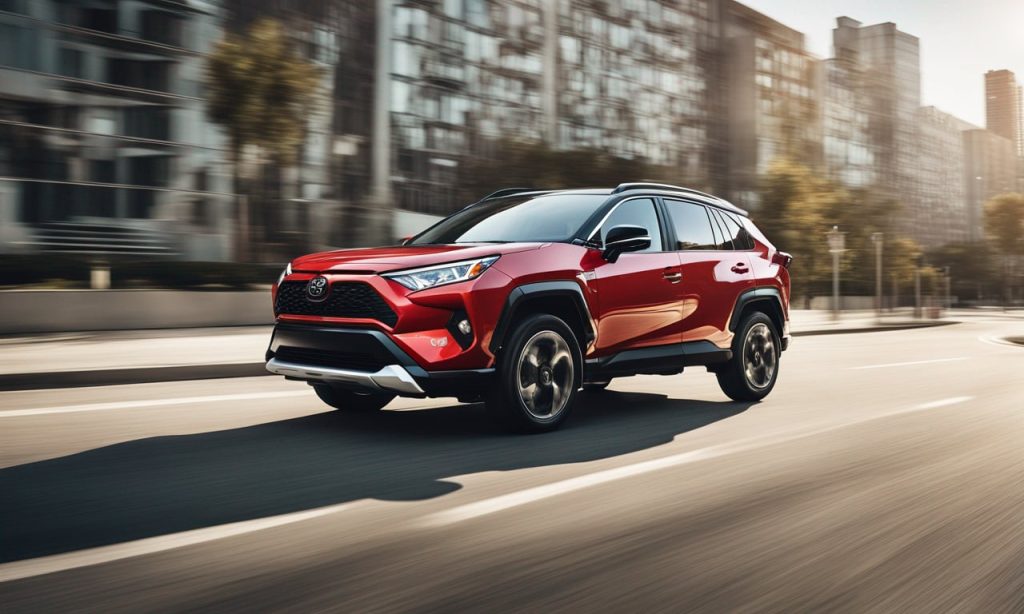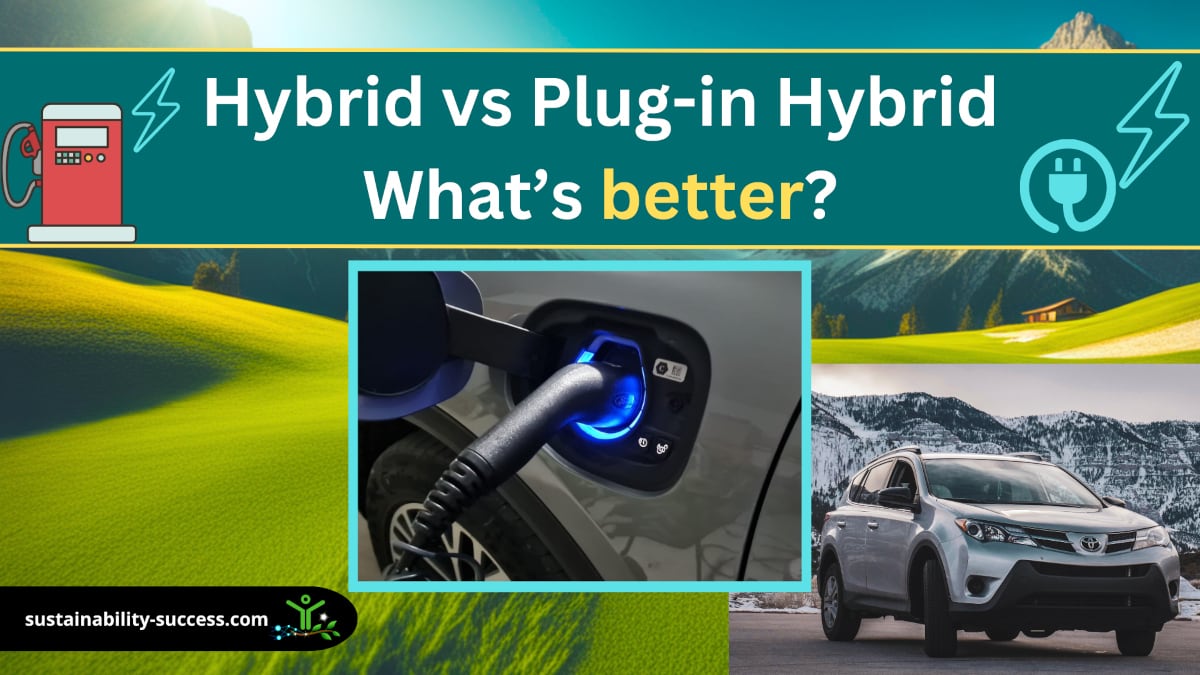With many new hybrid and plug-in hybrid models becoming available, it can be tough to decide which type of electrified vehicle is right for you. This comprehensive guide provides an in-depth comparison of hybrids vs plug-in hybrids to help you choose.
Differences Hybrid vs Plug-in Hybrid
Hybrid and plug-in hybrid vehicles offer similar benefits, such as improved fuel economy and reduced emissions.
However, there are some key differences between the two types of vehicles. Here’s the difference between hybrid and plug-in hybrid:
- Plug-in hybrids can travel further on electric power alone than a traditional hybrid vehicle, allowing them to be driven for extended periods without using any gasoline. They also tend to have larger batteries that require more frequent charging.
- Hybrid vehicles rely heavily on gasoline for power, but their batteries recharge automatically while driving.
| Feature | Hybrid | Plug-in Hybrid |
|---|---|---|
| External charging | No | Yes |
| Battery size | Small | Medium to large |
| Electric range | Minimal | 25-90 miles |
| Charging method | Regenerative braking | Outlet + regenerative |
| Fuel efficiency | Good | Better for short trips below 50 mi |
| Emissions | Lower than gas cars | Much lower for daily use |
However, there is a potential costly downside to hybrid cars, especially for plug-in hybrids that you should be aware of. Keep reading to find out!
What is a Hybrid Vehicle?

A hybrid vehicle utilizes both an internal combustion engine (ICE) and an electric motor as propulsion sources. The gasoline-powered ICE charges a small battery pack that powers the electric motor.
This allows the hybrid vehicle to maximize efficiency by using both power sources in different scenarios.
Electric Motor Function
The electric motor provides extra power when accelerating and allows the car to be driven on electricity alone at low speeds. It also enables regenerative braking, where the electric motor charges the battery by converting kinetic energy during braking.
This combination of technologies allows hybrids to get excellent fuel economy compared to traditional gas-powered vehicles.
Battery Size and Range
Hybrids use relatively small battery packs ranging from 1-2 kWh since they are not designed to drive extended distances on electricity alone. The battery receives its charge through both regenerative braking and the internal combustion engine.
Most full hybrids have an electric-only range under 2 miles before the gas engine engages.
Efficiency Focus
The engine and battery size are optimized for maximum fuel efficiency rather than long electric-only driving. This allows hybrids to minimize emissions and fuel costs while retaining the driving range and convenience of gasoline refueling.
Hybrid System Architectures
Hybrid powertrains come in various configurations. Some hybrids can operate in parallel mode with both the engine and electric motor providing propulsion.
Others use a series configuration where the engine only charges the battery, and the motor drives the wheels.
Start-Stop Functionality
Many hybrids also incorporate start-stop systems that shut off the engine at idle to prevent wasteful fuel consumption while waiting at traffic lights or in drive-thrus. This further enhances their fuel efficiency benefits.
What is a Plug-in Hybrid Electric Vehicle (PHEV)?

Plug-in hybrid electric vehicles have a higher capacity battery pack than standard hybrids. This allows them to drive on electricity provided by the grid for an extended range before the gasoline engine is utilized.
PHEV battery sizes typically range from 10-35 kWh for an electric-only range of 25-70 miles on a single charge.
Electric and Gasoline Power
Plug-in hybrids supplement their powertrains with larger battery packs to enable longer daily driving without using gasoline.
However, they retain a gas-powered internal combustion engine to eliminate range anxiety on longer trips. Once the battery is depleted, it operates like a standard hybrid.
External Charging
PHEVs are charged by plugging into external electrical outlets and contain on-board chargers that can recharge the battery in 2-12 hours depending on the charging level.
Most can be charged using a standard 120V household outlet. Higher-amperage 240V Level 2 charging reduces charge times significantly.
Daily Electric Driving
Daily recharging enables PHEVs to run primarily on electricity for things like commuting and short trips. Their large batteries and external charging differentiate them from traditional hybrids focused on fuel efficiency rather than electric range.
Cost Considerations
By combining extended electric capabilities with gasoline power, plug-in hybrids provide the benefits of an EV without range constraints.
Here’s what you can expect to save when comparing hybrid vs gas cars and electric:
Travel Cost Per Mile – Gas vs Hybrid vs Electric Cars
| Gas Price | Gas Car | Hybrid Car | Electric Car | Electricity Price |
|---|---|---|---|---|
| $2 / gal | $0.09 / mile | $0.04 / mile | $0.01 / mile | $0.02 / kWh |
| $2.5 / gal | $0.14 / mile | $0.06 / mile | $0.03 / mile | $0.09 / kWh |
| $3 / gal | $0.17 / mile | $0.07 / mile | $0.05 / mile | $0.16 / kWh |
| $3.5 / gal | $0.20 / mile | $0.08 / mile | $0.07 / mile | $0.23 / kWh |
| $4 / gal | $0.22 / mile | $0.09 / mile | $0.09 / mile | $0.30 / kWh |
The data in the above table has been extracted from the chart of the Idaho National Lab (INL) and shows that electric cars, as well as hybrids, can save owners a lot of money in fuel costs over time compared to hybrids and traditional gasoline or diesel vehicles.
Due to how they work, the superior fuel economy of hybrids (and especially plug-in hybrids), the fuel savings can offset the higher purchase price over time.
This means that depending on your annual mileage, hybrids can be financially viable in the long run for those who prioritize fuel efficiency over other factors such as power or acceleration.
However, their larger battery packs increase upfront costs compared to standard hybrids designed for maximum mpg rather than electric range.
Maintenance and Repair Costs
Plug-in hybrids require less maintenance than gas vehicles since oil changes are needed around half as often. Brake pad replacements are also less frequent due to regenerative braking.
In fact, according to the US Department Of Energy, here are the average maintenance costs per mile for gas, hybrid, plug-in hybrid, and electric cars:
| Gas Car | Hybrid Car | Plug-In Hybrid | Electric |
|---|---|---|---|
| $0.101 / mile | $0.094 / mile | $0.09 / mile | $0.061 / mile |
Based on this data, if you make 10,000 miles in a year, in terms of maintenance, you can expect:
- Saving $70 per year with a hybrid car
- Saving $110 per year with a plug-in hybrid car
- Saving $400 per year with an electric car
However, their larger batteries can be very costly to replace, often ranging from $5,000 to $10,000+ for a new battery.
Benefits of PHEVs
- Longer electric-only range – 20 to 50 miles typically
- Still has a gas engine for longer trips
- Lower emissions for daily commuting
Limitations of PHEVs
- Higher upfront costs than hybrids
- Require convenient charging access
- Less efficient than hybrids once battery depleted
Full Hybrid vs Plug-in Hybrid: Which is Better?
There are pros and cons to both hybrids and plug-in hybrids. The best option depends on your driving habits, needs, and budget.
Upfront and Operating Costs
Plug-in hybrids cost $2,000-$10,000 more upfront than comparable hybrids. However, federal tax credits of up to $7,500 can help reduce PHEV costs.
Plug-ins can save on fuel costs for short commutes but have higher electrical costs.
Environmental Impact
Plug-in hybrids, if used for short commutes, are equivalent to or better (smaller battery) than EVs, which according to MIT produce around 60% fewer lifetime emissions than gas cars.
Standard hybrids are also reducing emissions, but usually not as much as plug-in hybrids, because they never run only on electric power.
While they produce fewer emissions than gasoline vehicles, PHEVs still rely on fossil fuels for power and may not be as environmentally friendly as fully electric cars.
However, the exact reduction varies based on electric grid sources and usage patterns.
Charging Considerations
Plug-in hybrids require access to electrical outlets for charging. Charging speed ranges from 2-12 hours. Public charging expands options but comes with fees.
Battery degradation is a concern with excessive quick charging.
Use Case Scenarios
Those with short commutes or access to charging do well with plug-in hybrids. On the other hand, standard hybrids work better for long highway trips.
All-electric vehicles optimized for in-city use under 100-200 miles daily. Range and charging access are key factors. You can read more about hybrids vs electric cars here.
Fuel economy
- Full hybrids typically get more than 50 miles per gallon combined (data of the Department of Energy).
- Plug-ins use zero fuel and go full electric for the first 25-50 miles. They tend to be more fuel efficient when driven regularly in city traffic or over short distances as they are able to rely more heavily on electric power alone.
Current Tax Credits and Incentives
Up to $7,500 in federal tax credits are available for many plug-in hybrids. Some states offer additional rebates of up to $2,000.
Refer to the U.S. Department of Energy guide to check your vehicle’s eligibility.
Frequently Asked Questions
Is a plug-in hybrid better than a regular hybrid?
Plug-in hybrids provide longer electric range and lower emissions but cost more upfront. They’re best for shorter daily driving.
How much higher are maintenance costs for plug-in hybrids?
Plug-in hybrid maintenance is comparable to regular hybrids, except potential high battery replacement cost. Oil change frequency is lower.
Conclusion
So, plug in hybrid vs hybrid: in conclusion, plug-in hybrids can be worth it because they offer significant benefits for emissions reductions and daily electric driving but come at a higher upfront cost. Carefully assess your individual driving needs and budget to decide if a plug-in hybrid is your best option.
By the way, If you are interested in purchasing the best plug-in hybrid SUV, then you should definitely read my detailed guide about them.
Carefully assess your individual driving needs and budget to decide if a plug-in hybrid is your best option. I hope that this guide helped you to better understand hybrids and plug-in hybrids and which is better for your needs. If you have any queries, just leave me a comment below!
You may also be interested in the following articles:

